Snap judgments can be surprisingly reliable from "summary" of Blink by Malcolm Gladwell
We live in a world where we are taught to carefully weigh all our options before making a decision. We are told to gather as much information as possible, analyze it thoroughly, and then come to a conclusion. However, what if I told you that sometimes, our initial, instinctual reactions are actually more reliable than the conclusions we reach after hours of deliberation?Our snap judgments, those split-second decisions we make without really knowing why, can often be surprisingly accurate. Take the example of the Greek statue that was being sold to the Getty Museum. Experts spent hours examining the statue, analyzing its composition, and determining its authenticity. However, when a group of art historians took one look at the statue, they immediately knew that something was off. Their instinctual reaction turned out to be correct - the statue was a fake. But how can our brains make such accurate judgments in the blink of an eye? The answer lies in the concept of "thin-slicing" - our ability to make quick judgments based on limited information. When we thin-slice, we filter...Similar Posts
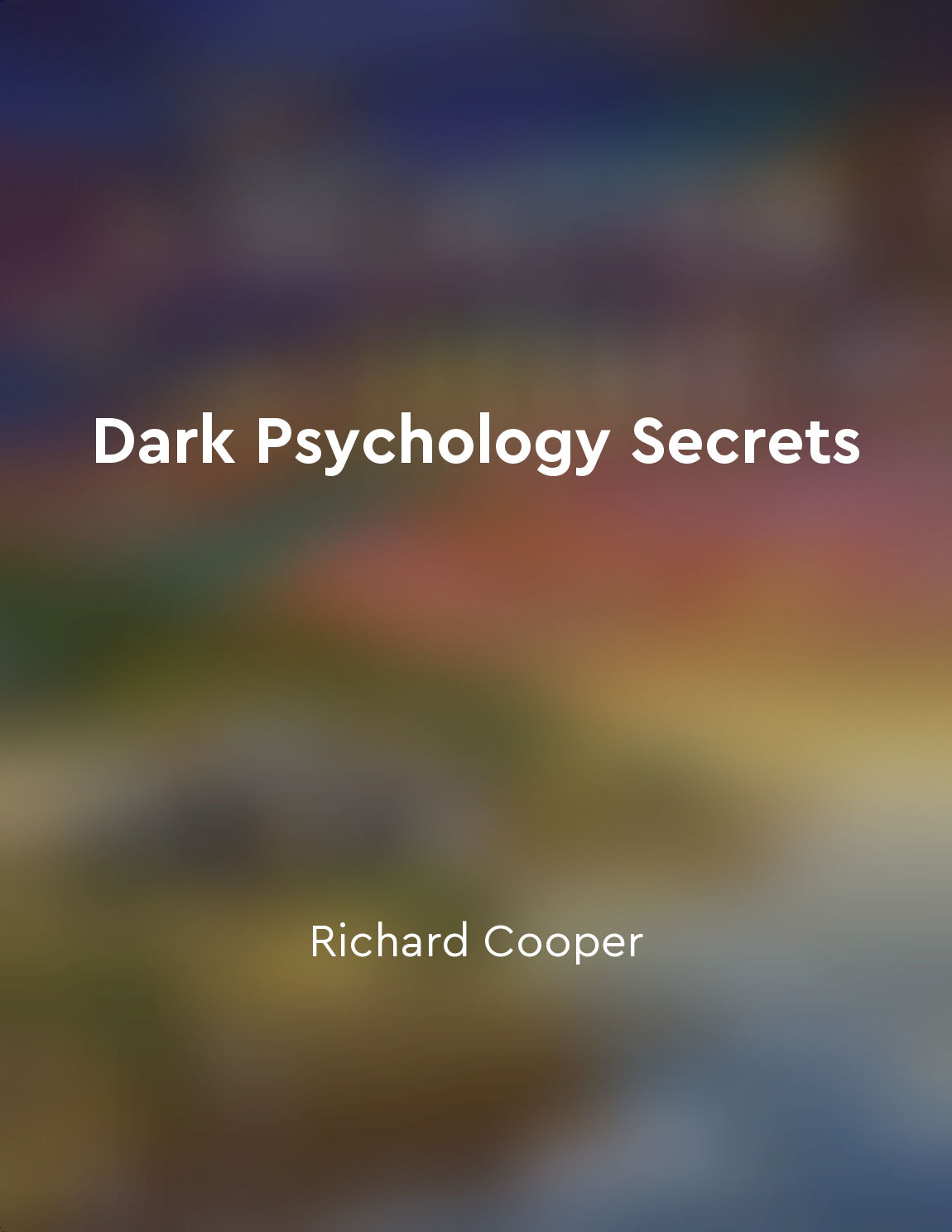
Power dynamics play a role in manipulation
Manipulation is a complex dance of control and influence that often hinges on power dynamics. Understanding power dynamics is c...
Practice empathy and understanding towards others
To be successful in life, it is essential to develop the ability to empathize and understand others. This means putting yoursel...
Critical thinking involves weighing evidence carefully
When engaging in critical thinking, it is essential to carefully consider the evidence presented before drawing any conclusions...
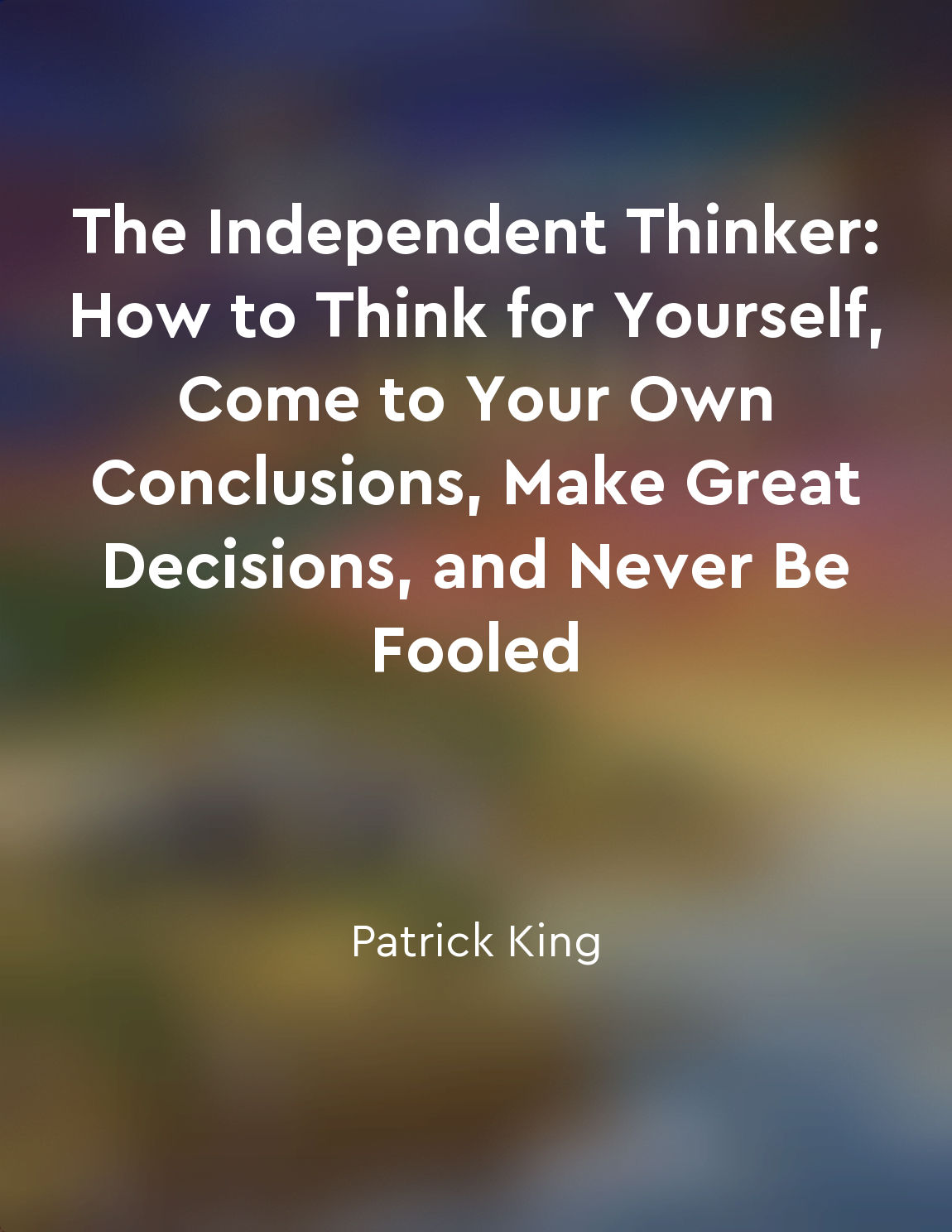
Stay openminded
The concept of staying openminded is crucial for independent thinking. It involves being receptive to new ideas, perspectives, ...
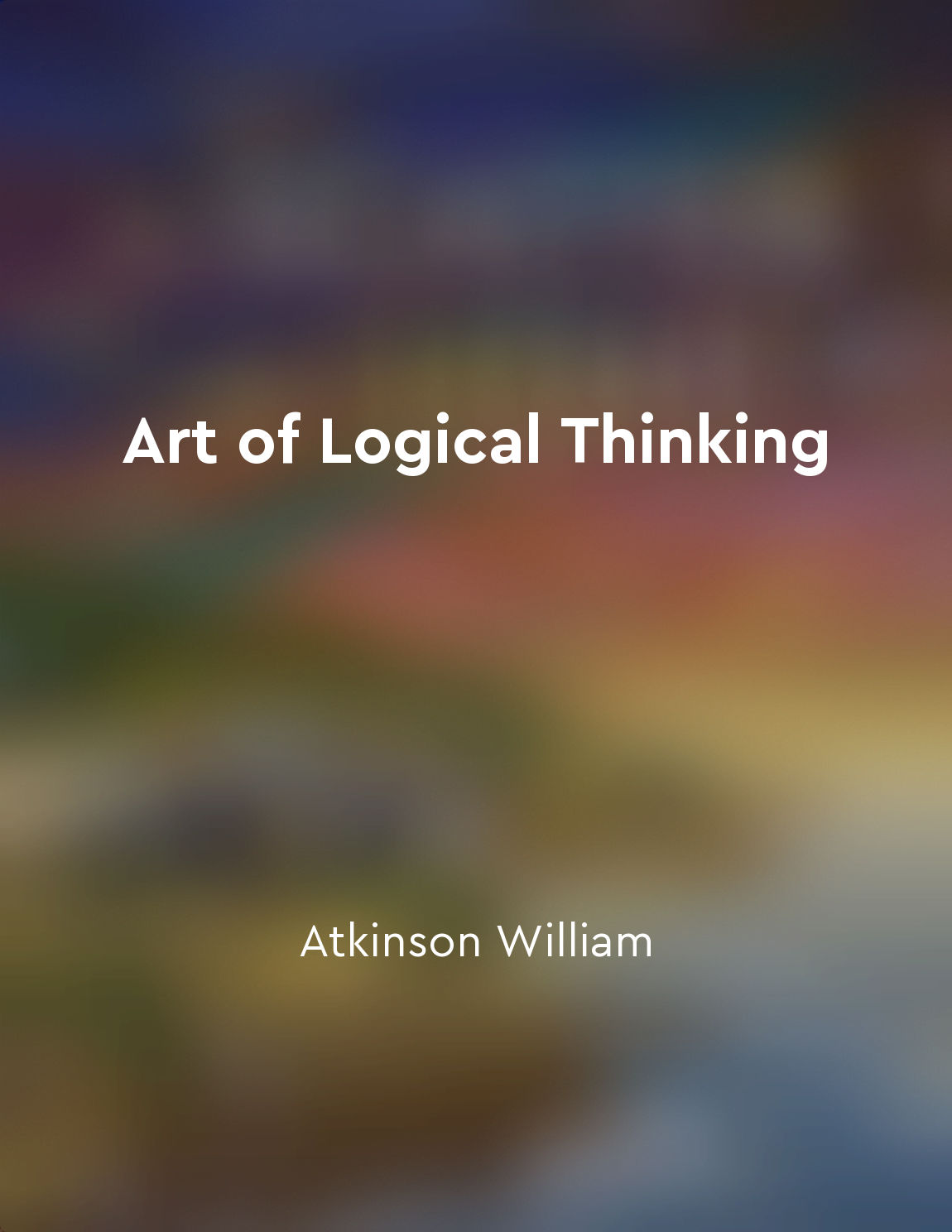
Deductive reasoning draws specific conclusions
Deductive reasoning is a process of drawing specific conclusions based on general principles or premises. This type of reasonin...
Recognize the limitations of your own knowledge and expertise
Understanding the limitations of your own knowledge and expertise is a crucial aspect of clear thinking. It is important to ack...
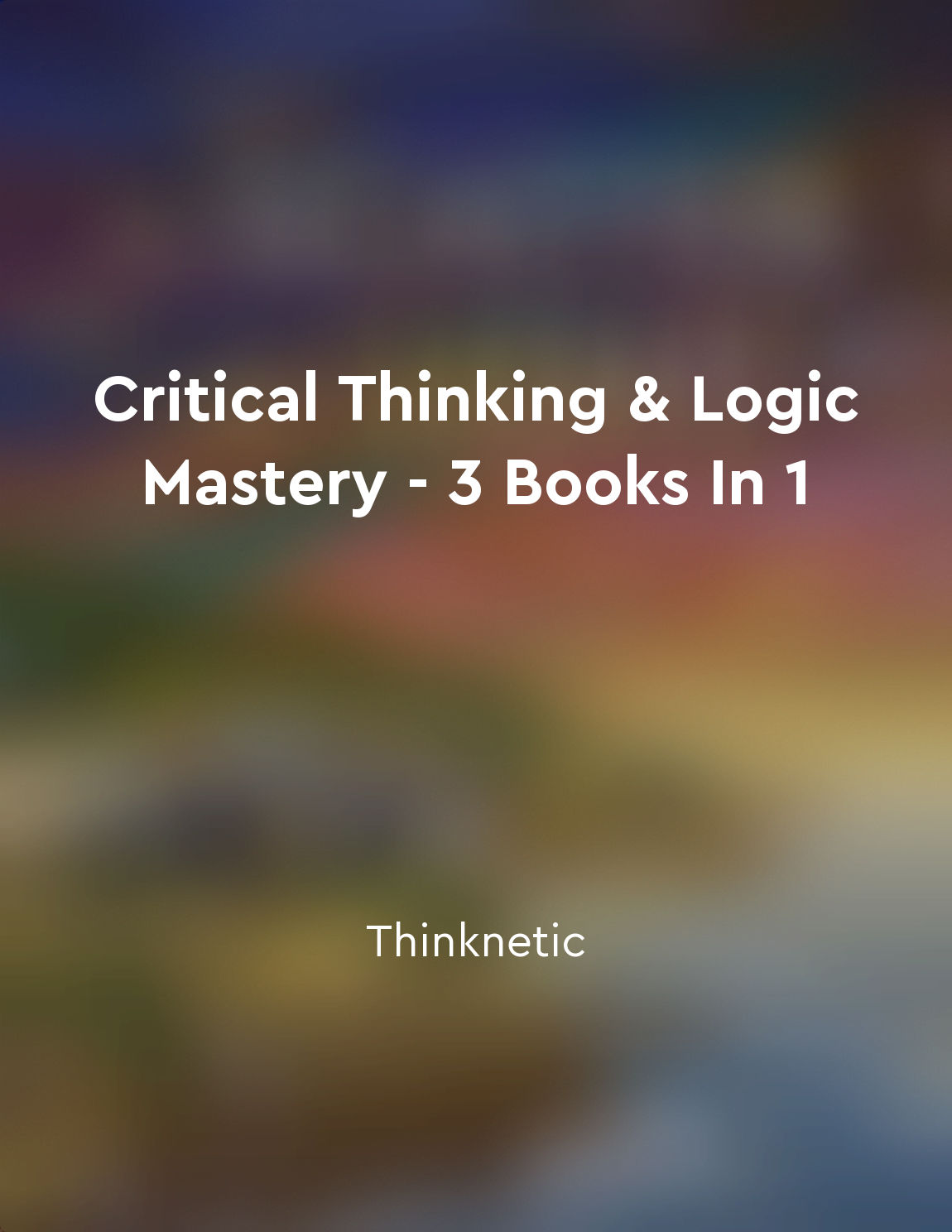
Acknowledging counterarguments strengthens one's position
When presenting an argument, it is essential to acknowledge counterarguments that may arise. This practice not only demonstrate...
Constraints can lead to creative solutions
Constraints are often seen as obstacles to progress. However, in reality, they can actually be the catalyst for innovative thin...
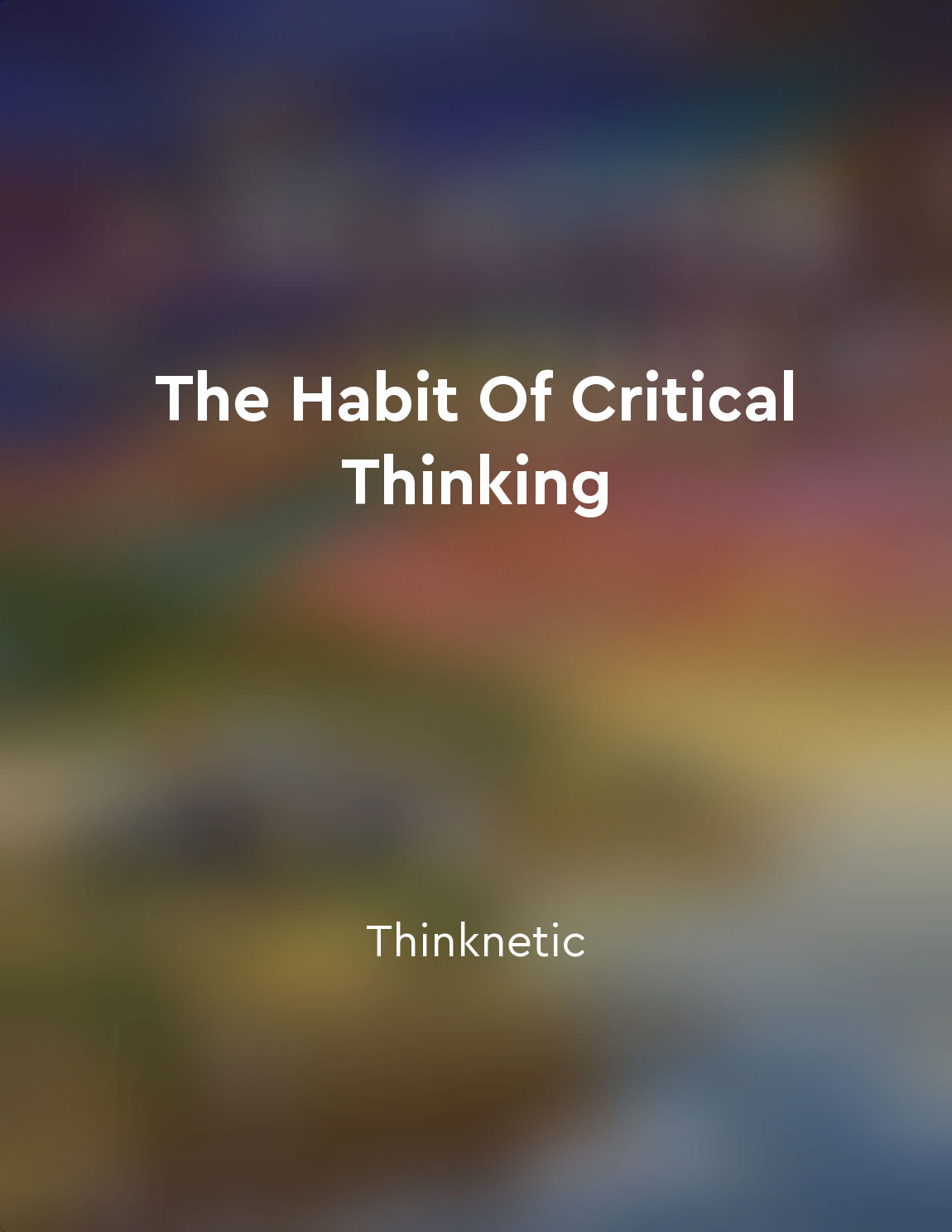
Practice is key
The concept that underlies the development of critical thinking skills is simple yet profound: practice is key. It is through c...

Identify your core beliefs
Identifying your core beliefs is essential in order to understand why you do what you do. Your core beliefs are the fundamental...
